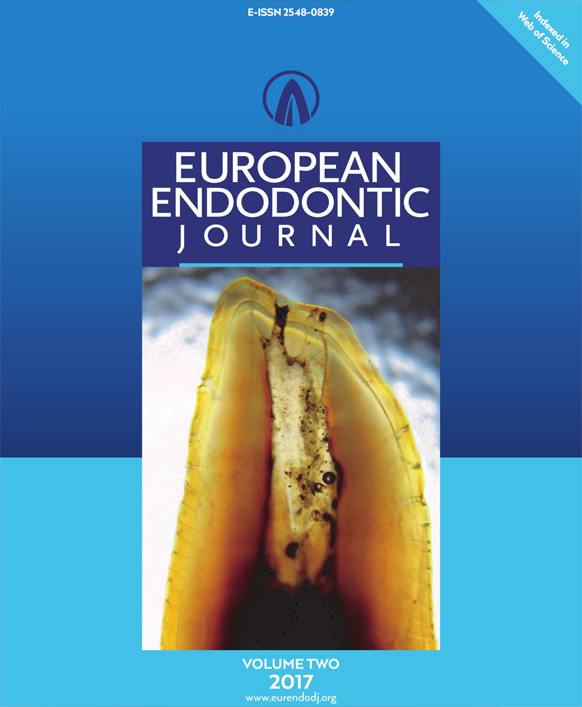
European Endodontic Journal
Yazarlar: R. M. Lindblad, L. V. J. Lassila, P. K. Vallittu, L. Tjäderhan
Konular:-
DOI:10.14744/eej.2018.02886
Anahtar Kelimeler: Adhesion,Chlorhexidine,Dimethyl sulfoxide,Irrigation,Microleakage,Obturation,Root canal sealers
Özet: The aim of root canal obturation is to prevent leakage and inhibit microbial invasion. This study aimed to determine the effect of chlorhexidine (CHX) and dimethyl sulfoxide (DMSO) as final irrigants on microleakage of root filling immediately and after 18 months. The hypothesis was that either CHX or DMSO would not affect the immediate or long-term microleakage. Methods: A total of 120 human third molar root canals were obturated with RealSeal SE or Topseal and gutta percha. Before obturation, the canals were irrigated with saline (control), 2% CHX or 5% DMSO. Microleakage of half of each groups (n=10) was measured after 3 days, and of the other half was measured after 18 months with fluid filtration method. Results: In immediate measurements, RealSeal SE performed significantly better in CHX-irrigated group (p=0.035; Mann-Whitney test). For both sealers, DMSO had the lowest mean microleakage values, which were also statistically significantly lower than with CHX irrigation within sealers (p<0.009 for Topseal and p=0.04 for RealSeal SE; Mann-Whitney test). With RealSeal SE, the microleakage with CHX was significantly higher than that in controls (p=0.022; Mann-Whitney test). Conclusion: Neither final irrigant showed statistically significant differences in the immediate microleakage within the two sealers. Irrigation with DMSO caused significantly less microleakage than CHX for both sealers after 18 months.